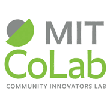The Project
WASTE PICKING AND POVERTY:

Catadores (waste pickers) are among the poorest and most marginalized people in Brazil. This population is highly vulnerable and composed mostly of women, children, recent migrants, unemployed, disabled and the elderly. In nearly all cases, trash picking is an activity of last resort to starvation. In Brazil it is a way of life for an estimated 500,000 people.
The Brazilian federal government has recently recognized scavenging as a professional activity and the national union of waste pickers has become a legitimate stakeholder in government decisions on waste management and recycling. Catadores are organized into local city unions under the larger national umbrella of the Movimento Nacional dos Catadores de Materiais Recicláveis (MNCR). In São Paulo, Rede CataSampa, the local chapter, supports fifteen neighborhood cooperatives. Currently, the reselling of WVO, as well as other recyclable trash, is accomplished by working through middlemen who take most of the profits, resulting in extremely low revenue for the cooperatives, as noted by the catadores’ average daily income of less than US$7 (less than half of the 2010 Brazilian minimum wage of R$510 per month).
WASTE VEGETABLE OIL (WVO):

Dumping WVO into waterways poses serious environmental issues for the city of São Paulo. Currently, 5,700,000 residents in the city dispose of WVO by throwing it directly into rivers. Waste vegetable oil pollution can kill fish and plant life as well as harm birds and it has sparked the creation of regulations to control discarding WVO into waterways. These regulations require that all new buildings be equipped with grease traps, which are to be emptied appropriately rather than deposited directly into the environment. With the precedent set by these initial regulations, the possibilities for new laws that mandate proper disposal of all WVO potentially create an even larger supply for collection by catadores. Although five of the twenty São Paulo cooperatives already collect WVO (from restaurants and private homes) and there is an additional supply of WVO available due to these new regulations, the São Paulo waste picking cooperatives struggled to find a lucrative use for WVO.
(1) Sabesp - A Vida Tratada Com Respeito. Web. 11 Apr. 2010. http://www.sabesp.com.br.
PHASE I -- INSTRUCTIONAL WORKSHOP
In August of 2010 the Grease Project ran a workshop in CRUMA, a well-established São Paulo cooperative, that taught catadores: 1.) a simple, low-tech method for converting diesel engines to run on WVO; 2.) how to filter WVO; and 3.) the best modes of WVO collection. In addition to teaching catadores the method of conversion by using the cooperatives’ trucks as demonstration vehicles, work completed during the course of the workshop nearly eliminated fuel costs for the waste picker union’s network of twenty co-ops.
PHASE II -- EXPANDING INTO EIGHT BRAZILIAN CITIES
Armed with our on-line training manual and instructional video, a team of São Paulo catadores will travel to eight other cities with well-established waste picking associations. In cooperatives in Diadema, Garulhos, Sao Jose do Campos, Rio Claro, Campinas, Palmital, Barueri, and Osasco vehicles will be converted and catadores will be trained to maintain trucks. For purposes of troubleshooting, local WVO technician, Paulo Lenhardt, will be available to provide technical support for a period of two years.





